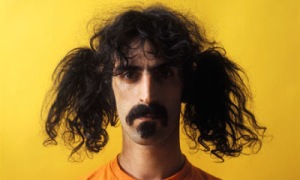I have been reading through Malcolm Gladwell’s interesting and acclaimed 2008 work Outliers as of late. Although I was initially dubious about one of the central ideas of the work (essentially, that being in the right place at the right time is just as, or even more, important than having the smarts/skills to achieve success)*, I have come to believe that he is correct about this.
It seems to me, however, that this is not something that necessarily needed to be elaborated beyond a basic understanding of economic action, and of economic understanding as a whole.
The best example of this principle in action, in my opinion, is in the entertainment industry: namely, the realm of bands and of theatrical films. Anyone who has attempted to play music professionally in any way knows that the current market is very competitive and difficult to find a “niche” for which one can offer their “service” (and sadly, at least in my personal subjective opinion, music is certainly a service, AND a product..)
I can personally attest to this difficulty, and it has made me think deeply about the potential implications for some great artists of yesterday. Could The Beatles have “made it” today in the current climate? Frank Zappa? There are countless great artists that achieved “success” within the framework of the industry at a certain point in time, but it is impossible to say if they would have succeeded today, when a great number of artists are required to eschew a division of labor in music production thanks to the decimation of labels and the economic recession/depression.
The same goes the other way. I brought up The Beatles because in my opinion there are countless talented artists today who remain underground, that I frequently wonder if in another era they would have been a “Beatles”. And since The Beatles have a monopoly on the production of music by The Beatles, could they have theoretically filled that niche in that other time/place?
Gladwell includes, underneath the general auspice I drew up of “being in the right place at the right time”, such factors as individuals’ socioeconomic background. Certainly this can be a factor, since this can determine the kind of access one has to equipemtn, the level of support one might have to “purse their dreams” or to “get a real job”, etc.
Outliers is, for the most part, a recommendable work, but I feel that anyone with a solid sense of microeconomics and entrepreneurship will feel that the book is stating the obvious. However, I would venture to say the majority of people do not have a truly solid understanding of microeconomic theory and human action.
*this is my personal interpretation


